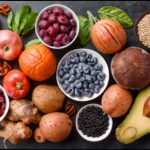In a world teeming with health advice, the wisdom shared by Arta Hanssen stands out, especially when it comes to bolstering your immune system through a plant-based diet. With an array of colorful fruits, vegetables, and whole grains, this diet isn’t just about abstaining from animal products; it’s a lifestyle choice that could lead to a stronger, more resilient body. Arta Hanssen, with a deep understanding of the symbiotic relationship between nutrition and health, sheds light on how a plant-based diet can be a cornerstone for immune health.
The Foundation of a Plant-Based Diet
Embracing a plant-based diet is not merely a dietary change but a journey towards a more harmonious way of living. According to Arta Hanssen, the key is to focus on whole, minimally processed foods that are rich in nutrients essential for immune function.
Immune-Boosting Nutrients in Plant Foods
Plant foods are powerhouse sources of antioxidants, vitamins, and minerals. Arta Hanssen emphasizes the importance of vitamin C from citrus fruits, vitamin E from nuts and seeds, and other phytonutrients found in a rainbow of plant foods that support immune health.
The Gut Health Connection
The gut is often referred to as the body’s second brain, and for good reason. A plant-based diet promotes a healthy gut microbiome, which is crucial for immune system regulation. Arta Hanssen discusses how fiber-rich plant foods nourish beneficial gut bacteria, fostering a strong immune response.
Reducing Inflammation with Plants
Inflammation is a natural immune response, but chronic inflammation can lead to health issues. Arta Hanssen shares insights into how plant-based diets, rich in anti-inflammatory compounds, can help keep inflammation in check, supporting overall immune health.
Plant-Based Proteins and Immune Health
Protein is vital for building and repairing body tissues and making antibodies for immune defense. Arta Hanssen explores the best sources of plant-based proteins and how to incorporate them into your diet effectively.
The Antioxidant Advantage of Plant Foods
Antioxidants play a critical role in protecting the body’s cells from damage. Arta Hanssen delves into how plant-based diets are rich in antioxidants, which can bolster the body’s defense against illness.
Practical Tips for Adopting a Plant-Based Diet
Transitioning to a plant-based diet can be daunting for some. Arta Hanssen offers practical advice for making the switch, including how to gradually increase plant-based foods in your diet and finding balance and variety.
Plant-Based Recipes for Immune Health
Arta Hanssen shares some of her favorite immune-boosting plant-based recipes, which are not only nutritious but also delicious and easy to prepare.
The Role of Supplementation
While a plant-based diet can provide most necessary nutrients, Arta Hanssen discusses the role of supplementation, particularly for nutrients that may be harder to obtain, such as vitamin B12 and omega-3 fatty acids.
Success Stories: Transformations with a Plant-Based Diet
Hear from individuals who have experienced significant health improvements, including enhanced immune function, after adopting a plant-based diet. Arta Hanssen highlights these inspiring stories to motivate and encourage others.
Overcoming Challenges and Misconceptions
Adopting a plant-based diet comes with its set of challenges and misconceptions. Arta Hanssen addresses common hurdles and provides guidance on how to overcome them.
The Environmental and Ethical Benefits of a Plant-Based Diet
Beyond personal health, Arta Hanssen touches on the broader environmental and ethical implications of choosing a plant-based diet, including its impact on animal welfare and sustainability.







